
Miguel de Cervantes Saavedra was an Early Modern Spanish writer widely regarded as the greatest writer in the Spanish language and one of the world's pre-eminent novelists. He is best known for his novel Don Quixote, a work considered as the first modern novel. The novel has been labelled by many well-known authors as the "best book of all time" and the "best and most central work in world literature".

The Western canon is the embodiment of high-culture literature, music, philosophy, and works of art that are highly cherished across the Western hemisphere, such works having achieved the status of classics.
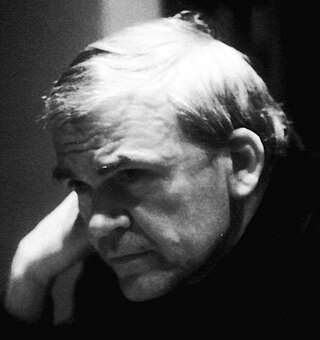
Milan Kundera was a Czech and French novelist. Kundera went into exile in France in 1975, acquiring citizenship in 1981. His Czechoslovak citizenship was revoked in 1979, but he was granted Czech citizenship in 2019.

Kitsch is a term applied to art and design that is perceived as naïve imitation, overly eccentric, gratuitous or of banal taste.
Ian Watt was a literary critic, literary historian and professor of English at Stanford University.

Julian Patrick Barnes is an English writer. He won the Man Booker Prize in 2011 with The Sense of an Ending, having been shortlisted three times previously with Flaubert's Parrot, England, England, and Arthur & George. Barnes has also written crime fiction under the pseudonym Dan Kavanagh. In addition to novels, Barnes has published collections of essays and short stories.

The Life and Opinions of Tristram Shandy, Gentleman, also known as Tristram Shandy, is a novel by Laurence Sterne. It was published in nine volumes, the first two appearing in 1759, and seven others following over the next seven years. It purports to be a biography of the eponymous character. Its style is marked by digression, double entendre, and graphic devices. The first edition was printed by Ann Ward on Coney Street, York.
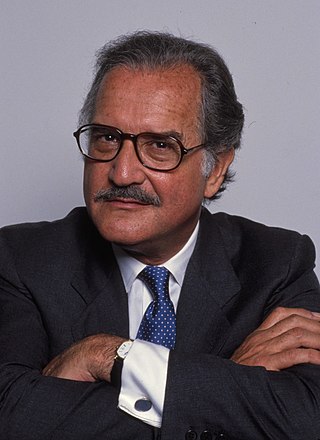
Carlos Fuentes Macías was a Mexican novelist and essayist. Among his works are The Death of Artemio Cruz (1962), Aura (1962), Terra Nostra (1975), The Old Gringo (1985) and Christopher Unborn (1987). In his obituary, The New York Times described Fuentes as "one of the most admired writers in the Spanish-speaking world" and an important influence on the Latin American Boom, the "explosion of Latin American literature in the 1960s and '70s", while The Guardian called him "Mexico's most celebrated novelist". His many literary honors include the Miguel de Cervantes Prize as well as Mexico's highest award, the Belisario Domínguez Medal of Honor (1999). He was often named as a likely candidate for the Nobel Prize in Literature, though he never won.

Hermann Broch was an Austrian writer, best known for two major works of modernist fiction: The Sleepwalkers and The Death of Virgil.
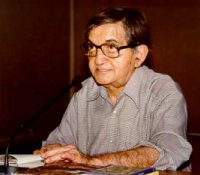
Nirmal Verma was a Hindi writer, novelist, activist and translator. He is credited as being one of the pioneers of the Nai Kahani literary movement of Hindi literature, wherein his first collection of stories, Parinde (Birds) is considered its first signature.
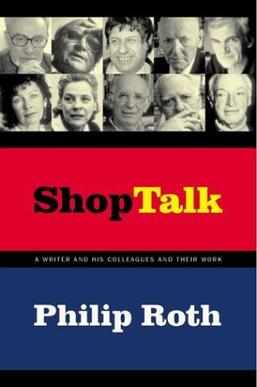
Shop Talk: A Writer and His Colleagues and Their Work is a collection of previously published interviews with important 20th-century writers by novelist Philip Roth. Among the writers interviewed are Primo Levi, Aharon Appelfeld, Ivan Klima, Isaac Bashevis Singer, Milan Kundera, and Edna O'Brien. In addition, the book contains a discussion with Mary McCarthy about Roth's novel The Counterlife and a New Yorker essay on Saul Bellow. Roth's trip to Israel to interview Appelfeld inspired his novel Operation Shylock.
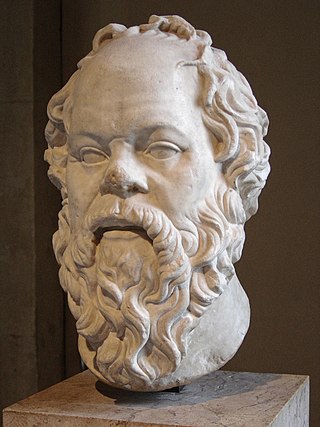
Philosophy and literature involves the literary treatment of philosophers and philosophical themes, and the philosophical treatment of issues raised by literature.
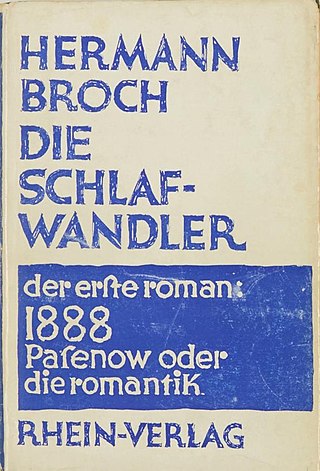
The Sleepwalkers is a 1930s novel in three parts, by the Austrian novelist and essayist Hermann Broch. Opening in 1888, the first part is built around a young Prussian army officer; the second in 1903 around a Luxembourger bookkeeper; and the third in 1918 around an Alsatian wine dealer. Each is in a sense a sleepwalker, living between vanishing and emerging ethical systems just as the somnambulist exists in a state between sleeping and waking. Together they present a panorama of German society and its progressive deterioration of values that culminated in defeat and collapse at the end of World War I.

Jacques the Fatalist and his Master is a novel by Denis Diderot, written during the period 1765–1780. The first French edition was published posthumously in 1796, but it was known earlier in Germany, thanks to Schiller's partial translation, which appeared in 1785 and was retranslated into French in 1793, as well as Mylius's complete German version of 1792.
"Stalking the Billion-Footed Beast" is an essay by Tom Wolfe that appeared in the November 1989 issue of Harper's Magazine criticizing the American literary establishment for retreating from realism.

Ata Nahai is a Kurdish-Iranian novelist and short story writer who writes in Sorani Kurdish.
Alan Bilton is a British academic and novelist. His debut novel, The Sleepwalker's Ball, was published in May 2009 by the small independent Welsh press Alcemi. As an academic working for the American Studies department of the University of Wales, Swansea, his areas of expertise and interest are 20th-century / Contemporary American Fiction, American Film, Modernism, Postmodernism and Psychoanalysis.
The 100 Books of the Century is a list of the hundred most memorable books of the 20th century, regardless of language, according to a poll performed during the spring of 1999 by the French retailer Fnac and the Paris newspaper Le Monde.

A novelist is an author or writer of novels, though often novelists also write in other genres of both fiction and non-fiction. Some novelists are professional novelists, thus make a living writing novels and other fiction, while others aspire to support themselves in this way or write as an avocation. Most novelists struggle to have their debut novel published, but once published they often continue to be published, although very few become literary celebrities, thus gaining prestige or a considerable income from their work.

The Festival of Insignificance is a novel by Milan Kundera. This is his eleventh and final fictional work before his death in 2023. It is about a man named Alain, who has not seen his mother since his childhood; Ramon, an intellectual who has retired; D'Ardelo, a man who has a narcissistic personality; Charles and "Caliban" are two people who operate a catering firm; and Quaquelique is an old man who remains attracted to women. Quaquelique manages to seduce women using his skill at non-stop talking. The novel is set in Paris. The themes include "the erotic potential; the link between mother and child; the procreative role of sex; angels...[,] navel gazing...and insignificance. The novels' characters discuss the philosophical ideas of Hegel, Kant and Schopenhauer. The novel is made up of seven parts. The theme of insignificance was also used in The Unbearable Lightness of Being.
















